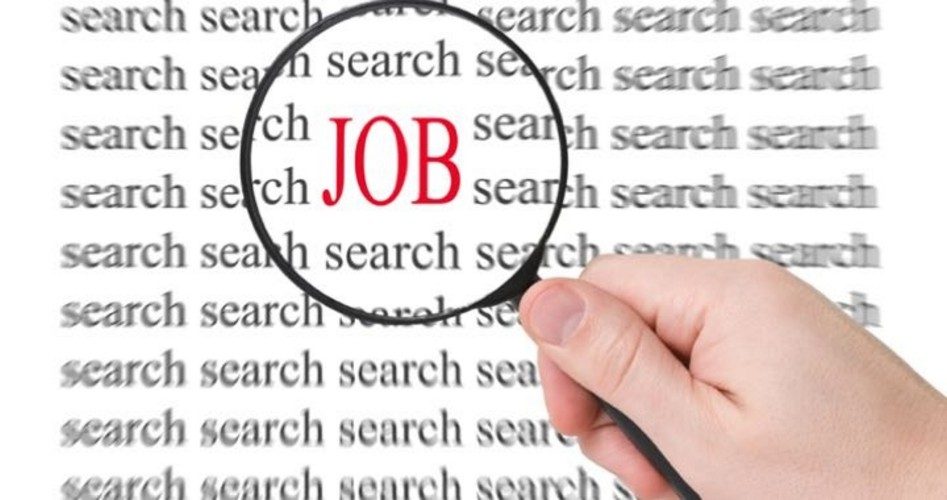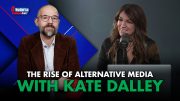
Within 15 minutes of Friday morning’s release of the July jobs numbers by the Bureau of Labor Statistics (BLS), President Trump tweeted: “Excellent Jobs Numbers just released — and I have just begun. Many job stifling regulations continue to fall. Movement back to USA!”
He has good reason to cheer: July’s numbers were strong across the board. Whether he should take credit for all of it remains questionable. But he had just returned from a speech to his supporters in West Virginia the night before and was likely still enjoying the adrenalin afterglow.
An early riser, the president had just tweeted even before the jobs numbers had come in: “Toyota & Mazda to build a new $1.6M plant here in the U.S.A. and create 4K new American jobs. A great investment in American manufacturing!” He added: “And don’t forget that Foxconn [the Taiwanese electronics manufacturer] will be spending up to 10 billion dollars on top of the line plant/plants in Wisconsin.”
Now on a roll, the president tweeted a few minutes later (4:26 a.m. ET): “Consumer confidence is at a 16-year high … and for good reason. Much more regulation ‘busting’ to come.”
There is much for the president to celebrate: Economists projected July job growth at 175,000; it came in at 209,000. They estimated the unemployment rate would stay low; it came in lower than expected. They hoped to see an increase in wages — typical at this stage in an economic recovery — and the BLS obliged: up nine cents (to $26.36 an hour), reflecting an increase of 2.5 percent year over year.
Over the last three months, jobs growth has averaged nearly 200,000 a month, way ahead of 2016 and pushing total new job growth under the Trump administration to more than one million.
Behind the headlines the news was good: The manufacturing sector added 16,000 jobs in July, while growth in services and summer activity (professional and business services, education and healthcare, and leisure and hospitality) accounted for 70 percent of the job growth for the month. Notable also was the tiny increase in government jobs, at just 4,000.
With Amazon and other online retailers creating jobs at warehouses and distribution centers, job growth in the coming months is likely to remain strong as well.
Even the economists who got caught underestimating the growth in employment in July were happy with the numbers. Steven Blitz at TS Lombard said: “The great deceleration in hiring that began at the beginning of 2015 and ran through 2016 is now done with, with monthly private sector job gains settling in at an average of 180,000.” Jed Kolko, writing at the Indeed blog, exulted: “This was a banner jobs report. With the strong payroll number in July, job growth in the past three months is ahead of the 2016 pace and way ahead of what’s needed to keep up with population growth. Working-age adults are now more likely to be employed than at any time since the recession.”
Dr. Andrew Chamberlain, economist at Glassdoor Careers, picked up something from the report that many missed: “Thanks in part to continued positive news from the labor market, the labor force grew by 349,000 workers in July. That helped boost the labor force participation rate.”
The negatives weighing on the economy are continued sluggish auto and home sales, the threat of the nation’s central bank raising interest rates (and consequently the cost of borrowing), and its threat of offloading onto the bond market billions of government bonds it bought at the start of the Great Recession nearly 10 years ago. Either of those moves by the Federal Reserve would raise the cost of capital and could slow or stall the economy.
It’s impossible to estimate how much damage the labor market would suffer if the Trump administration fails to keep its promises to continue cutting regulations and lower tax rates. Those expectations are baked into the decisions by small business owners — the primary drivers of job creation — to ramp up employment in anticipation of even better times to come.
For the moment, however, as Chamberlain said, “The U.S. economy shows no signs of slowing.”
Photo: Clipart.com
An Ivy League graduate and former investment advisor, Bob is a regular contributor to The New American magazine and blogs frequently at LightFromTheRight.com, primarily on economics and politics. He can be reached at [email protected].



